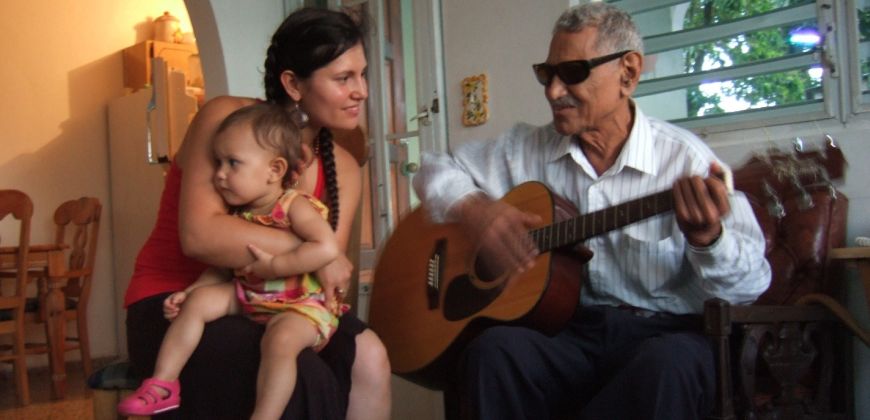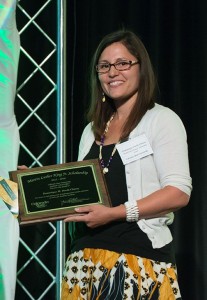
Davíd-Chavez with her daughter and grandfather in Barrio Coco Viejo, Salinas, Puerto Rico.

Colorado State University doctoral student Dominique Davíd-Chavez has long been dedicated to the nature of community-based research and ensuring that indigenous knowledge is valued in the sciences — and now others are taking notice. She’s been awarded a National Science Foundation Fellowship, CSU’s Martin Luther King Scholarship, and a 2015 Center for Collaborative Conservation Fellowship.
Taíno tribe
Davíd-Chavez is a member of the Taíno tribe, an indigenous tribe of the Caribbean, and a first-generation college student in the Human Dimensions of Natural Resources Department in the Warner College of Natural Resources. While she was raised mostly in the U.S., her extended family has lived in the Barrio Coco Viejo in Salinas, Puerto Rico, for over a century.
“My 104-year-old uncle has lived in the same area his entire life,” said Davíd-Chavez. “I can’t help but wonder what researchers are missing by not hearing his insights about that place.”
Partnering with elders and cultural organizations
Davíd-Chavez will partner with elders and local cultural organizations in Salinas to ensure indigenous stories are told and valued both as a means of improving research about the area, but also to encourage other indigenous people to consider science careers.
With the NSF funding, Davíd-Chavez will hold informal science workshops with young people on the islands to do earth science projects that incorporate local knowledge, language and place names into the process. She intends to measure the students’ engagement in the workshops and their interest in college and science careers before and after they participate.
Network of Caribbean scientists
Her CCC project is to create a network of Caribbean scientists, educators and conservation practitioners to facilitate partnerships as well as highlight Taíno people who have gone to college and chosen careers in the sciences.
“There are a lot of us studying our culture, our languages and even the geology of the islands, but there’s no means of connecting with one another,” she said.
Bringing diversity into the sciences
All of these projects are aimed at moving the needle in terms of bringing diversity into the sciences and ensuring that research appropriately engages the knowledge that indigenous people can offer about their environments.
“Diverse students bring along diverse world views,” Davíd-Chavez said. “We need the kinds of innovations that come with those viewpoints to address our environmental challenges. Textbooks generally don’t include local knowledge, and our stories are not incorporated into science and history education, I want to do something about that.”